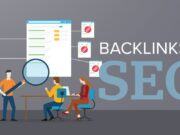
You’re split between starting your own business and becoming your own boss and applying for or sticking with your 9-to-5 job since it’s more comfortable and less intimidating.
Jobs have been there through the good and bad times, even after the pandemic we’ve had to transition to working remotely but keep our jobs. Given that the data points to a bright future in the job market, and that being an employee has worked for everyone you know, why fix something that isn’t broken?
On the other hand, you can witness a rising tide of entrepreneurs talking about the independence and fulfillment that comes with running successful firms — and if you have that spirit, it’s difficult to put this appealing calling aside altogether. However, entrepreneurs lost their businesses during the pandemic. This article aims to ease your decision making process by giving you a few pointers to help you navigate industry. Read on to find out how.
Page Contents
Career Path

Pros
1. Assured Income
The most obvious advantage of having a job is the income it provides. Having your own reliable, consistent source of income might provide you with a sense of security. You can plan and budget better if you know what goes into your paycheck.
It is much easier to prepare for future spending and leave less to chance or time spent week after week putting together tedious budgets. Instead of worrying about whether you’ll be able to afford rent or buy groceries at the end of the month, you’ll know what’s covered and what isn’t.
2. Higher Chance of Achieving a Work-Life Balance

It is a fallacy that running a business gives you the freedom to do anything you want, whenever you want. When you’re a business owner, you’re in charge of everything, which means there’s always more to do. In short, there is more accountability, and the lines between tasks are not always clearly defined. A job, on the other hand, will most likely allow you to turn off your computer as soon as you clock out or go home for the day.
3. Skill Growth and Enhancement
The corporate world is brimming with a wide range of talents and capabilities. Various programs and initiatives provide work possibilities as well as exposure to various professions. This open forum for workers allows for the development of new skills. Furthermore, working for a company or organization allows you to build and expand your network, which is advantageous while climbing the corporate ladder or switching firms.

Cons
1. External Dependency
If you have a great concept for a project or know how to boost productivity, you can’t just put it into action right now. Before taking any action, you must present yourself and obtain permission.Furthermore, regardless of merit or competence, office politics can have a significant impact on how effectively your ideas are received.
2. The Routine Monster
Employment constraints inside a specific industry or position may effectively limit your ability to grow as a person. Employees often have fewer options for growth and can only grow in a certain task or department. A healthy competitive attitude is often no longer healthy; it is simply competing in a vacuum.
3. Job Security/Insecurity
Let’s face it, people in the corporate sector are motivated by ambition and competitiveness, and hence may be expendable. Jobs are not usually guaranteed for the duration of a person’s employment, and companies are frequently able to fire employees without providing a compelling cause. Of course, this depends on the company’s culture; yet, job security is never guaranteed.
Starting a Business

Pros
1. Customizable Work Hours
It’s incredibly appealing for an entrepreneur to be able to select when and where he or she works. You’re more likely to be more productive and have a better sense of well-being if you’re realistic and don’t give yourself too much unscheduled downtime. Knowing that no one is peering over your shoulder and breathing down your neck makes you feel less worried.
2. Diversity in Learning
As a prospective business owner, you will gain significant knowledge in areas important to business management. Such experiences can be beneficial regardless of whether you decide to return to work for another company or take the more adventurous route of starting your own.
3. Personal Satisfaction
You will feel much more fulfilled and happy in your work as a business owner if you see consistent profits and general progress. True, the pressure and difficulty of achieving entrepreneurship success can create an addicting sense of self-assurance. Furthermore, depending on how you define self-worth, most successful small company entrepreneurs would believe that their peers like and appreciate them for having the courage to go out on their own and succeed.

Cons
1. The Risk Factor
Making the decision to be an entrepreneur and going it alone comes with a lot of risks. What if your business plan doesn’t work out? It’s not for the weak-willed. The risk of disappointment, the fear of others noticing your loss, sliding into debt, and the chance of bankruptcy – it’s not for the weak-hearted and willed.
2. Funding Issues
It’s rare to see a new business take off immediately. Even if your business appears to be profitable on paper, you’ll need enough cash flow to pay your employees and cover your overhead. You’ll need to alter your plan on a regular basis to make it more efficient, cheaper, and faster, or you’ll end yourself in serious debt.
3. Stress-Levels

Being a business owner may be a tough and lonely position, with no fixed income, no manager to provide guidance, and no colleagues to offer support. Even in a crisis, you must remain cool, collected, and positive. This, combined with the mental strain of being your own boss, legal counsel, marketing department, and accountant all rolled into one, may be exhausting. You can find more useful information on https://seomeetup.com/blog/
Conclusionhe
So there you have it; the decision isn’t as straightforward as it appears; there’s a lot to think about. It’s critical to make the appropriate decision early on whether to establish a business or work for someone else, because switching later will be difficult. As a result, it’s critical to do a self-audit. To truly understand which path to choose, acquire a hold on your personality, values, and capabilities.
If you do decide to take the business path, chances are you will need to attend trade shows, exhibitions and marketing events for the business. We recommend investing in high-quality, and business specific LED screens for events, click here for more information. Good luck in making the final decision.































